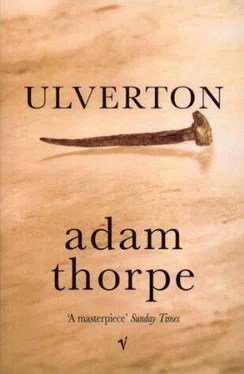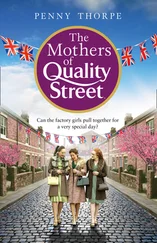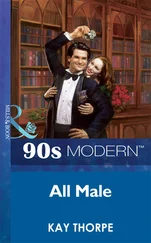doused the candles in the stable. A man with a basket stood against the Door & the carters came out with straw. Some others heaped straw beneath the iron Plough. It was not light enough to see their Faces, tho’ I heard one say
round and about again, the identical histories — or histories I must hope are identical, else the mis-match might prolong the Prosecution to a tedious extent. I nudge here and there — for one will have a lanthorn where there has been always a candle — and another a candle where there has been always a tinderbox. Dearest Emily, I have numbed you with my Legal gossip: how does your breathing now, out of the city? And what of Uncle after your father’s visit? Does he still smile on us from his ebbing bed? Have you broached the Subject again? A simple stroke of the pen would do it, but can he see? Did your father meddle in his drawer? I am exceeding vexed. My coat is almost out at elbow. Your father cannot have all. How long it takes to weave the cobweb (which is the Will) and how quick to tear it down (which is the Codicil). How, if we are to hang upon your father alas — am I to shift his judgement of me? My letter to him has not been answered. My head swims with all this — round and about — like a whirl-
desperate fellows in the main. They are well-known abouts and are unmarried. They had blackened their faces with soot,
chalked right across the door: ‘We have Not yet Dun.’ Squire in a heat: thunder on the stairs, & in the pantry. In the Riots, he was conciliatory — says Wellington is a ruffian, for Wellington made suggestion that the magistrates hunt them down for sport with horsewhips and fowling pieces. If Squire were to have his way, there wd be Prison only for these fellows. His own farm has lost three ploughmen and a pig-man, two of whom might hang and all are certain to be transported — if the Briefs do their work. I say to him the Law, in this case, must act as the Example to some, and be merciful to others (we cannot have 2,000 guilty — our prisons are already stuffed with them, and there will be more agitation). He says, that is not our way: he blames all on the machines — and certain ‘Radical scoundrels’ — & France — and mutters darkly against the tithes — and wd against our local Lord, if he was not enamoured of the dark wine up there, that is served in crystal. Most tedious supper yesterday, at the Doctor’s — much of the party & their daughters of the mind that we shd bring the price of Bread lower, & feed these fellows. I said we cannot have robbery, Arson, extortion & machine-breaking without shewing how Diabolical these acts are, or tomorrow our transport ships wd be lower still in the water with the consequence of imaginary grievances — that we must nip in the bud, to save the flower — that Lord C. is for swinging the Mob in toto — that these Horrid acts must spread like a Contagion without hard medicine — and other such ruminations, that impressed the Assembled no end, as all visitors from the Town must, tho’ they be cork-brained as the wine. The company included the Archdeacon of Salisbury, a plump fellow by the name of Fisher, & his friend Mr Constable the painter, who then broke out of gloom to strike a somewhat stained fist upon the table, spluttered against various types of dregs — was all for sluicing out the rabble forthwith — that the agitators of Reform were sent by the Devil — that Mechanicks must be kept solitary or their evil dispositions wd be fanned into flame — thus buttressing my argument, but with a degree of passion that almost undid the whole. He is sketching the Cathedral in Salisbury for a great work which shall shew a rainbow over the edifice — this the Ecclesiastical Government according to the Archdeacon, whereupon Mr Constable broke into an exceedingly admirable discourse on opticks, and the lustre of wet grass, and the calm white edges of moving clouds being his soul — or the wet grass was — or both at once — leastways he ended by stating that Paradise was a slimy post in a ditch, or some such, which provoked all present into peals of mirth. Upon returning to the subject of our troubled times, one daughter, of a fierier disposition, stated — looking at me as the chief organ of this illumination — that ’twas hard to call it Extortion, for the like shillings-round was done at Whitsun for the feast, & was an ancient practice in all the villages, & that the labourers were dressed as for this Procession — in ribands & suchlike, & blew horns as on that day. Thereupon there fell a hush, and a clearing of throats — & I kept, as Lord Erskine wd have done, an auspicious silence — that cowed the company quite — until I spoke but these words with a serious demeanour: ‘I see no blossom on the trees, madam. Pray excuse me, I did not know it was Whitsun here, & Extortion in London.’ This made enough break into laughter, as to patch the threadbare situation. So I hone my rhetoric even at the table. I keep to the road and take a servant with a lanthorn, for I will not be bludgeoned to death in this wretched hole. I am almost finished — the wigs will be huffing and puffing in the Courthouse next Thursday. The tightness in my chest is gone — I am better with the medicine — tho’ this cough hangs
that many were starving. The said Rector Willington answered, that he & his fellows must leave at once, but here is 3 Sovereigns, and he would be seeing to their requests. I staid by the fireplace until the Mob left. As I served the Rector Willington with some kidneys, he said to me that I must not go out this day, and that he hoped the Church wd not be ent
the dregs remain: I stir them to a kind of cloud of comprehensibility, but their minds are slow and stupid, and they slouch, as it were, without a burden on them but one of sloth. My clerk tells me they are weak from hunger — but this cannot be in such provident country, of rich tilth, when the very Hedgerows have been evidently dripping with fruit. But O this wretched winter! — I am feeling pinched and vexed today, from an incident earlier: some children, seated before what I perceived to be a tumbled-down cot — but was on closer inspection teeming with life as a corpse teems with maggots — on the outer edge of the village, whence I was bent on exercising my legs after a crabbed term of duty at my desk — these ragamuffins (all of the most swarthy hue, like sweeps — it appears to me this whole village is inked in dirt) followed me at a distance until I reached the first ridge of the hill, whereupon they stirred themselves to a clamour of the most injudicious calumny against my person, as being knock-kneed — scrawny-necked — the smallest pig in the litter — a ‘carroty-pawled cadger’ and other descriptions I will not blush you with, all in a dialect so ripe as to be barely comprehended but by those, like myself, forced to become adepts thro’ no fault of their own — and upon my waving my walking-cane at them, knob-first, and calling them to be Off, a large fellow joined them, of as Outdoor an appearance as all the labourers here, but somewhat more bent in the back, with filthy black hands — & who stood and watched me for a moment, with a hand upon the shoulders of the Riff-raff about him, as (I thought) a prelude to cajoling and punishment — but who then emitted a chortle that kindled the like in his brood (for I guessed he was the Father) and I was forced to beat an ignominious retreat over the Ridge and out of sight, where I was taken with a small Fit — for I have never been able to withstand Mockery of any sort, but crumble like a Biscuit in hot tea. Such topsy-turviness makes me fear for the Country, as if every weedy word of these inflammatory pamphlets have seeded themselves deep in the fallow hearts of the peasant classes, and by dint of one’s mere presence one Ploughs them up willy-nilly to the surface — and thus may be imagined the Harvest to come. Does it rain the like in Matlock? You might paint indoors, if so. Here we tear up turf — these sodden slopes be our canvas — the foamy Horse is shaped so:
Читать дальше










